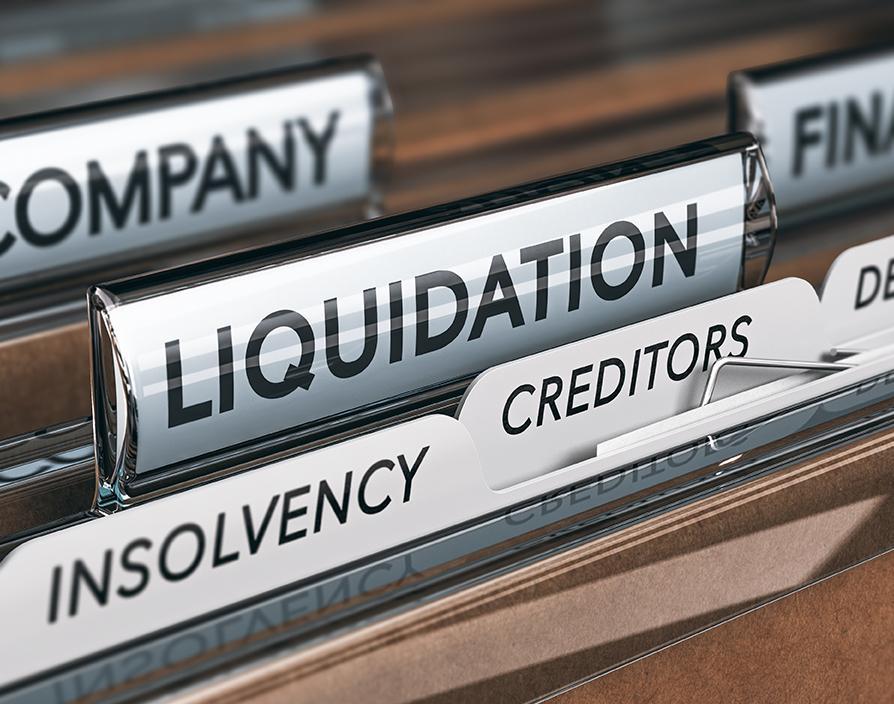The 10-Second Trick For Insolvency Practitioner
The 10-Second Trick For Insolvency Practitioner
Blog Article
8 Simple Techniques For Insolvency Practitioner
Table of ContentsSome Known Questions About Insolvency Practitioner.The Definitive Guide for Insolvency PractitionerA Biased View of Insolvency Practitioner7 Simple Techniques For Insolvency PractitionerInsolvency Practitioner Fundamentals ExplainedThe Definitive Guide for Insolvency PractitionerThe Of Insolvency Practitioner
Insolvency is when responsibilities are higher than the value of the business, or when a borrower can not pay the financial debts they owe. A company can become insolvent due to a variety of situations that cause inadequate capital. When faced with bankruptcy, a company or person can speak to lenders straight and restructure financial obligations to pay them off.
Company owners might get in touch with creditors straight and restructure financial obligations into even more workable installations. Lenders are usually amenable to this technique because they desire to be paid back and stay clear of losses, even if the settlement is on a postponed schedule.
The owner develops a proposal describing how the financial debt may be reorganized utilizing price reductions or various other prepare for assistance. The proposition shows financial institutions how business might generate sufficient capital for lucrative operations while paying its debts. Usually, a forgiven financial obligation might be thought about income by the Irs (INTERNAL REVENUE SERVICE).
How Insolvency Practitioner can Save You Time, Stress, and Money.
When an organization has to pay increased rates for items and solutions, the company passes along the cost to the consumer. Rather than pay the increased cost, numerous consumers take their service in other places so they can pay much less for a service or product. Losing clients results in losing income for paying the company's creditors.
The company may end up paying big amounts of cash in damages and be not able to proceed procedures. When procedures cease, so does the firm's income. Absence of revenue leads to unsettled expenses and lenders requesting money owed to them. Some firms become bankrupt because their items or services don't advance to fit customers' altering requirements.
How Insolvency Practitioner can Save You Time, Stress, and Money.
Expenditures exceed revenues and expenses continue to be unsettled. Sorts of insolvency include cash-flow bankruptcy and balance-sheet insolvency. Cash-flow bankruptcy takes place when a business has the properties to cover their financial debts but they remain in the wrong type, such as actual estate rather than liquid funds. Balance-sheet bankruptcy, on the various other hand, indicates an absence of properties in any type of kind to cover debts.
The internal revenue service states that an individual is financially troubled when the overall liabilities go beyond overall properties. Insolvency Practitioner. A insolvency, on the other hand, is a real court order that portrays how an insolvent individual or company will certainly settle their creditors, or exactly how they will market their possessions in order to make the repayments
All About Insolvency Practitioner
When a firm or person is bankrupt, they can not satisfy their financial commitments. Insolvency is not the very same as insolvency, although a company that has actually ended up being insolvent might submit for insolvency. Bankruptcy is the state of not being able to pay your commitments while personal bankruptcy is a lawful process to release your debts.
Recognizing the elements that can bring about insolvency, such as overspending, can assist you prevent bankruptcy and its consequences.
See This Report on Insolvency Practitioner
It is popular that supervisors and officers of firms (and managers of limited liability companies) owe fiduciary obligations to their organizations and their shareholders (or members). These fiduciary obligations are defined by state statutes and, though there are variants from one state to another, they normally consist of a responsibility of loyalty and a responsibility of care.
The responsibility of care requires directors and officers to work out persistance, to make educated decisions, and to act in great belief to ensure that their actions are in the very use this link best rate of interest of the company. Beyond the scope of this conversation, some states my response permit these tasks to be limited either by so noting in the business papers or abiding with other needs.
Insolvency Practitioner Things To Know Before You Get This

Be mindful concerning offering investors favoritism at the cost of lenders (e.g., licensing and moneying a reward or a supply redemption). Take care regarding favoritism between classes of investors. Clear up initiatives to find out all the truths before taking a certain program of action; directors should genuinely think that any type of choices made remain in the very best interests of the corporation in its totality (i.e., decisions will be assessed in hindsight due to the effect of such activities on the company).
In any personal bankruptcy or bankruptcy proceeding, settlements made to specific creditors at the expenditure of various other creditors can be clawed back, specifically if there is some link between the business and the creditor. Take into consideration recommending at a yearly shareholder meeting (or any kind of various other conference of shareholders) a resolution attesting that all prior organization decisions and activities taken by the directors and officers of the company were taken in great faith after click this a workout of reasonable care.
Not known Details About Insolvency Practitioner
Completely divulge any type of personal or company relationships with events on the other side of transactions entailing the firm to stay clear of the appearance of a dispute of rate of interest. In evaluating prospective fund raising transactions or a sale of properties of the troubled company, be conscious that these purchases might be looked at later on because of any type of subsequent growth of supervisors' fiduciary obligations to consist of creditors.
Report this page